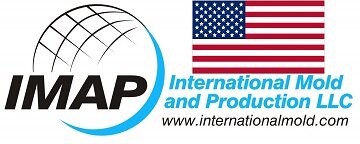Leonard Koren has been 3D printing for 20 years, and he’s seen a lot of progress over time. Future progress in manufacturing will depend upon more than just technology—a new mindset is needed, Koren believes.
Koren started his first 3D printing company in 1998 with a Stratasys FDM 2000, and in 2003 he founded International Mold and Production LLC to provide injection molding and 3D printing/additive manufacturing services. IMAP has been producing consumer goods and automotive parts for years, and the company recently exhibited at MD&M Minneapolis 2018 to introduce its capabilities to the medical device industry.
“There’s no question that there have already been great accomplishments in medical—casts, bio scaffolding, and even dental,” he shared with MD+DI. “I would like to propose something different. Now that we all have inventory management systems like SAP and Oracle, we are all under fire in those monthly meetings to reduce our inventory. What if our inventory was simply print on demand?
“We don’t need a warehouse of stuff anymore,” he added. “This applies across all industries, including medical.”
Koren believes manufacturers are in a good position to make the transition to print-on-demand products. “The good news is that we have almost everything we need now,” he said. “Machines are available, and the right materials are available. And from an innovation standpoint, adoption rates of 3D printing are skyrocketing right now like we’ve never seen. But how do we do something really innovative with this technology that matters?”
A new mindset is needed, one that includes “the ability to see what tomorrow will be like and how we will operate there,” he said.
For instance, Koren describes an environment in which companies launch volume production product while concurrently developing their service print-on-demand product so they can both go through validation testing at the same time.
“We spend a little more upfront, but we don’t carry that inventory burden on the books in those monthly meetings,” he explained. “We carry some raw materials like powdered plastic and powdered steel, which are shipped in on time and transformed magically within a few days.”
Koren said “we need the mindset to figure out what the tool shop of tomorrow is going to look. Will there even be one?” he mused. “Think of what we can do with a metal 3D printer, or several, operated by only one or two guys. The tool shop of tomorrow is going to evolve into a finishing and fitting shop.”
IMAP continues to invest in the latest technology “to keep costs down to compete on price,” he added. “Our business is founded on innovation, whether it’s our 3D-printed molds, our zero-tooling production cell, or our low-energy-usage molding machine running mold bases with quick-turn inserts.” The company works to replace low-volume molding with additive manufacturing using its 9 3D printers.
For traditional injection molding, it is running three new energy-efficient servo hydraulic presses that help keep operating costs “extremely competitive.” In addition to using 3D-printed plastic injection molds, it employs 3D-printed components for such molds (conformal cooling, sprue cooling, 3D inserts) and robotic sprue pickers.
